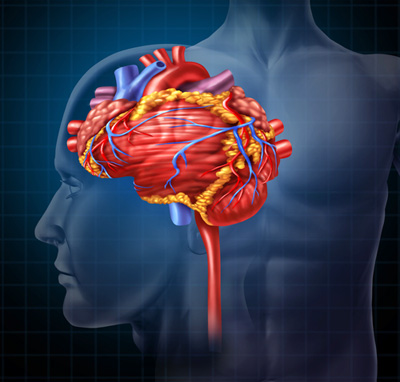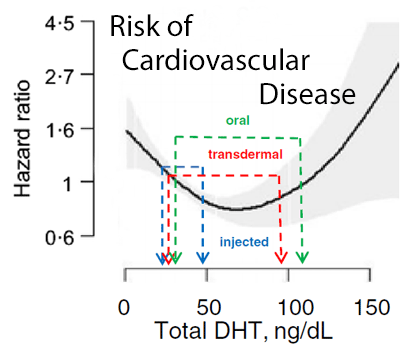Hematocrit (blood thickness) elevation following testosterone therapy – does it increase risk of blood clots?
- Published in Testosterone Replacement Therapy

In discussions about side effects of testosterone treatment, prostate cancer and heart disease get most attention. However, as we have described in several study reports published here in the “Research News” section, the widespread fear of prostate cancer and heart disease is unfounded and not supported by medical research.
The expected potential side effect of testosterone treatment - which in fact is a therapeutic effect in men with anemia [1-3] - is an increased level of red blood cells, known as erythrocytosis or polycythemia.[4-7] In the context of testosterone treatment, erythrocytosis and polycythemia are used interchangeably to refer to an abnormal increase of red blood cells or hematocrit, which may increase blood viscosity (“blood thickness”).[8, 9]
However, it should be pointed out that technically, erythrocytosis is just red blood cell elevation, while polycythemia involves elevation of red blood cells, white blood cells, and platelets. Using these terms as synonyms can cause confusion. In polycythemia, it is likely the increase in platelets that is the major culprit of blood clots.
Elevated hematocrit is the most common side-effect of testosterone treatment.[4-7] The clinical significance of a high hematocrit level is unclear, but it may theoretically be associated with an increased risk of thrombosis (blood clots).[4]
Here I summarize the results of an analysis of the effect of different testosterone preparations on hematocrit elevations, published in the journal Sexual Medicine Reviews.[10]
Survival and cardiovascular events in men on testosterone treatment
- Published in Testosterone Replacement Therapy

Effects of Testosterone Treatment in Older Men
- Published in Testosterone Replacement Therapy

Normalization of testosterone level is associated with reduced risk of heart attack, stroke and mortality in men
- Published in Testosterone Replacement Therapy

Aspirin – can it save you from heart disease or cancer?
- Published in Primary Prevention & Lifestyle

Cardiovascular Risks and Elevations of Blood DHT Levels Vary by Testosterone Preparation
- Published in Testosterone Replacement Therapy




